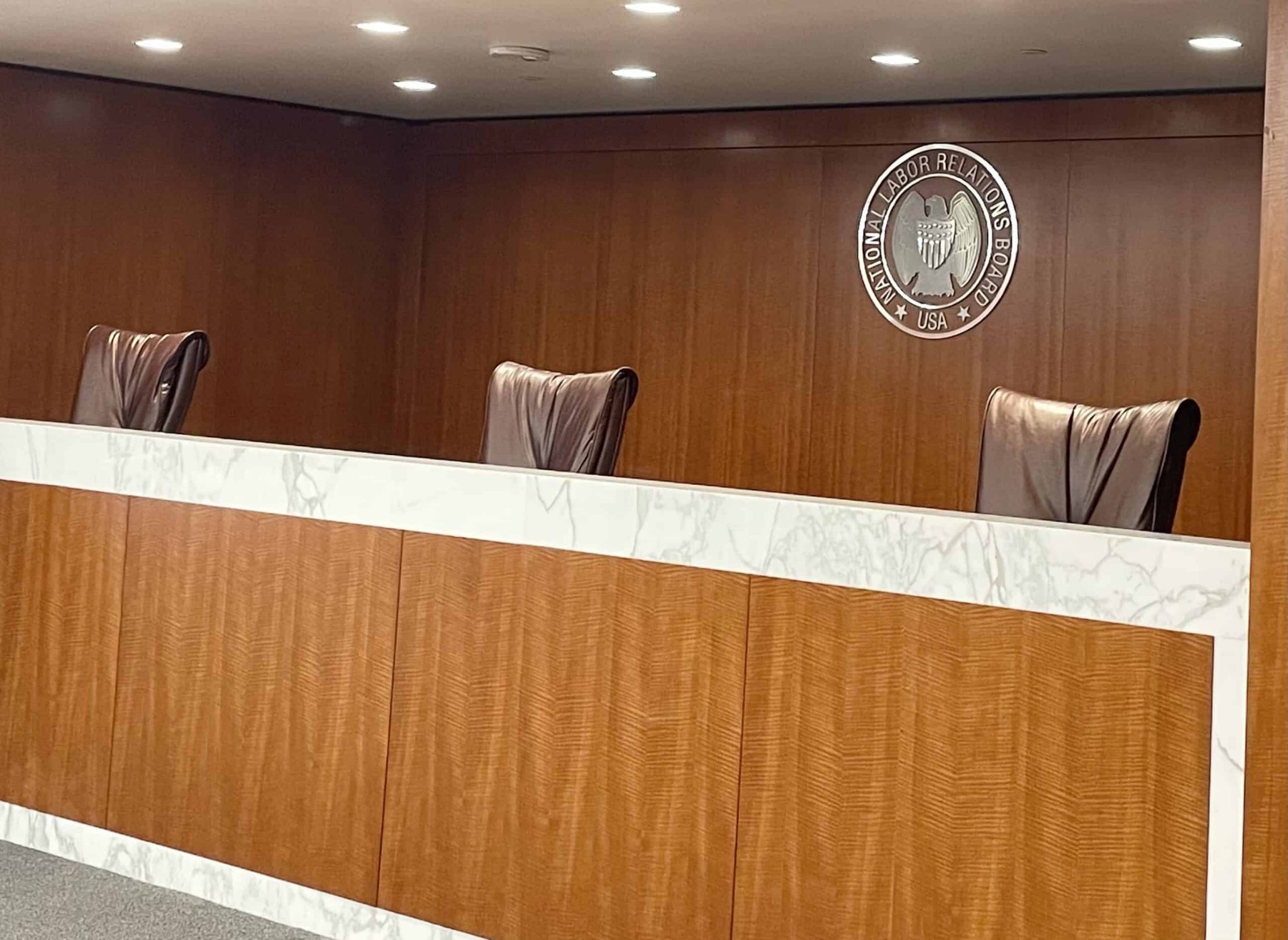
Swap Agrawal is a student at Harvard Law School.
In this weekend’s news and commentary, NLRB staff advocate for increased agency funding from Congress, and an NLRB motion argues that Amazon is violating a recent Section 10(j) injunction.
On December 1, the National Labor Relations Board Union announced a rally at NLRB headquarters in support of staff facing increased caseloads and imminent furloughs. Also on December 1, Karen Cook, the president of the NLRB Professional Association – a separate union of 122 staff attorneys and FOIA specialists at the agency – sent a letter to Congress asking for greater appropriations. “We work on 10-year-old computers with limited legal research tools and outdated electronic case management systems,” wrote Cook. “Ironically, the proposed raise for federal employees, although well-deserved, is no boon to employees of the NLRB. Having already made cuts in spending, the agency has no room to absorb payment of the increase without an increased appropriation. I know of no other federal agency that will be forced to furlough employees in order to raise pay, and no other federal employees whose cost-of-living increases will be clawed back in the form of unpaid, forced furloughs. In these circumstances, we are left to wonder what rational, prospective public servant would sign up for a career defending NLRA rights when Congress has made clear that those civil servants are so disfavored.” Advocacy by staff comes several days after co-chairs of the Congressional Labor Caucus urged House Speaker Nancy Pelosi (D-CA) and Senate Majority Leader Chuck Shumer (D-NY) to appropriate additional funds to the NRLB during the lame duck session before Democrats lose control of the House.
On November 30, the NLRB filed a motion in the Eastern District of New York asking the court to clarify an order against Amazon. On November 18, District Judge Diane Gujurati issued a Section 10(j) injunction against Amazon requiring the company to cease and desist from retaliating against employees for union organizing. The decision also directed Amazon to post, distribute, and read the cease-and-desist order to employee’s at JFK8, a Staten Island facility that voted to unionize earlier this year. According to the NLRB’s recent motion, Amazon “made a mockery” this order by planning to show workers a video regarding the order during shift change. However, the order’s language required Amazon to post the order “where [Amazon] customarily posts notices to its employees” and read the order at a meeting “held during working hours” and “scheduled to ensure the widest possible employee attendance.” On December 1, an Amazon spokesperson told Axios that the employer read the order out loud during a meeting. However, emails from Amazon lawyers state that the company is “not inclined to reconsider” where it will be posting notices. This ongoing battle highlights Section 10(j) of the National Labor Relations Act, a tool the NLRB relies upon to prevent employers from interfering with organizing campaigns.






Daily News & Commentary
Start your day with our roundup of the latest labor developments. See all
November 27
Amazon wins preliminarily injunction against New York’s private sector bargaining law; ALJs resume decisions; and the CFPB intends to make unilateral changes without bargaining.
November 26
In today’s news and commentary, NLRB lawyers urge the 3rd Circuit to follow recent district court cases that declined to enjoin Board proceedings; the percentage of unemployed Americans with a college degree reaches its highest level since tracking began in 1992; and a member of the House proposes a bill that would require secret ballot […]
November 25
In today’s news and commentary, OSHA fines Taylor Foods, Santa Fe raises their living wage, and a date is set for a Senate committee to consider Trump’s NLRB nominee. OSHA has issued an approximately $1.1 million dollar fine to Taylor Farms New Jersey, a subsidiary of Taylor Fresh Foods, after identifying repeated and serious safety […]
November 24
Labor leaders criticize tariffs; White House cancels jobs report; and student organizers launch chaperone program for noncitizens.
November 23
Workers at the Southeastern Pennsylvania Transportation Authority vote to authorize a strike; Washington State legislators consider a bill empowering public employees to bargain over workplace AI implementation; and University of California workers engage in a two-day strike.
November 21
The “Big Three” record labels make a deal with an AI music streaming startup; 30 stores join the now week-old Starbucks Workers United strike; and the Mine Safety and Health Administration draws scrutiny over a recent worker death.